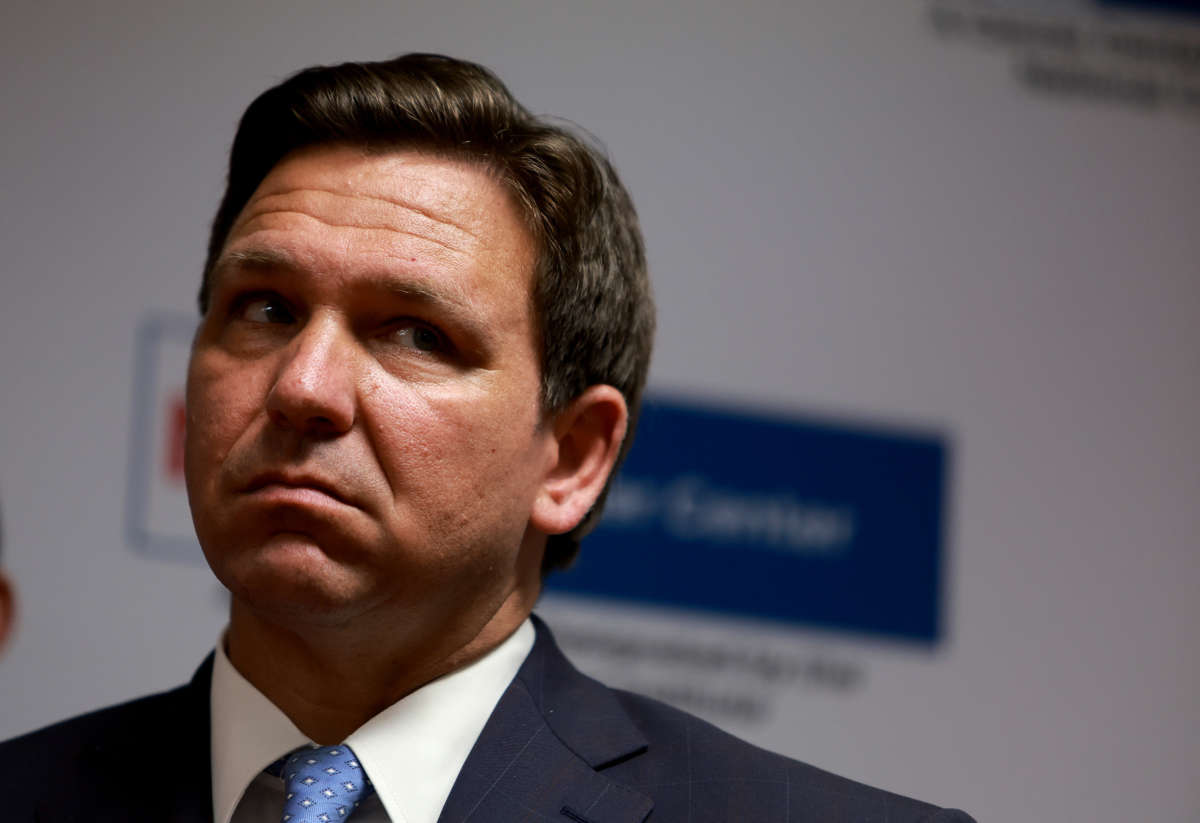For the second time in two years, Gov. Ron DeSantis (R-Florida) has vetoed millions of dollars in funding that would have gone toward making birth control accessible to low-income Floridians.
DeSantis vetoed a total of $3 billion out of the $110 billion budget that the state legislature sent him last month. Of the $3 billion he slashed, $2 million would have provided individuals with low incomes the opportunity to obtain long-acting, reversible forms of contraception, including intrauterine devices (IUDs), which are effective for up to 10 years, and Depo-Provera injections, which last for around three months, among others.
DeSantis issued a similar veto last year when the legislature attempted to include funding for long-acting contraceptives in the state budget.
The decision to veto such funding comes as the state is just a month away from implementing a 15-week ban on abortion.
The funding for long-acting methods of birth control is a rare bipartisan measure that is supported by both Democrats and Republicans in the state legislature. The effort to include it in this year’s budget was promoted and supported by state Senate President Wilton Simpson, an anti-abortion Republican lawmaker who supports the expansion of birth control access, particularly when it benefits who would not ordinarily be able to afford it.
“If you give those young women an opportunity not to get pregnant, then they have an opportunity to go to college or start a career,” Simpson said at the start of this legislative term.
Reproductive rights leaders in the state decried DeSantis’s action last week, noting that it is particularly callous because it will harm people with modest to low incomes.
“To take away health care from vulnerable people is just another example of his ongoing cruelty to Floridians,” said Stephanie Fraim, president and CEO of Planned Parenthood of Southwest and Central Florida, in an email to The Tampa Bay Times.
The contraceptives that could have been covered by the funding are more expensive than other forms of birth control, and thus not easily accessible for people with low incomes and those who cannot afford regular forms of insurance. Florida is also one of 12 states across the U.S. that hasn’t expanded Medicaid coverage since the Affordable Care Act passed more than a decade ago.
Americans overall support expanding access to birth control, both for those with lower incomes and for the public at large, especially if the Supreme Court overturns the long-established right to abortion access in the U.S, as it has repeatedly indicated it will. According to an Economist/YouGov poll published in May, 91 percent of voters say that birth control should be free to whoever wants it, if abortion protections in the U.S. are overturned later this summer.
We’re not backing down in the face of Trump’s threats.
As Donald Trump is inaugurated a second time, independent media organizations are faced with urgent mandates: Tell the truth more loudly than ever before. Do that work even as our standard modes of distribution (such as social media platforms) are being manipulated and curtailed by forces of fascist repression and ruthless capitalism. Do that work even as journalism and journalists face targeted attacks, including from the government itself. And do that work in community, never forgetting that we’re not shouting into a faceless void – we’re reaching out to real people amid a life-threatening political climate.
Our task is formidable, and it requires us to ground ourselves in our principles, remind ourselves of our utility, dig in and commit.
As a dizzying number of corporate news organizations – either through need or greed – rush to implement new ways to further monetize their content, and others acquiesce to Trump’s wishes, now is a time for movement media-makers to double down on community-first models.
At Truthout, we are reaffirming our commitments on this front: We won’t run ads or have a paywall because we believe that everyone should have access to information, and that access should exist without barriers and free of distractions from craven corporate interests. We recognize the implications for democracy when information-seekers click a link only to find the article trapped behind a paywall or buried on a page with dozens of invasive ads. The laws of capitalism dictate an unending increase in monetization, and much of the media simply follows those laws. Truthout and many of our peers are dedicating ourselves to following other paths – a commitment which feels vital in a moment when corporations are evermore overtly embedded in government.
Over 80 percent of Truthout‘s funding comes from small individual donations from our community of readers, and the remaining 20 percent comes from a handful of social justice-oriented foundations. Over a third of our total budget is supported by recurring monthly donors, many of whom give because they want to help us keep Truthout barrier-free for everyone.
You can help by giving today. Whether you can make a small monthly donation or a larger gift, Truthout only works with your support.
